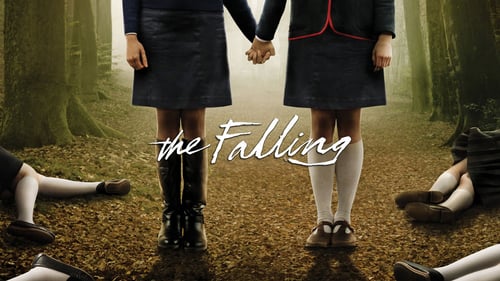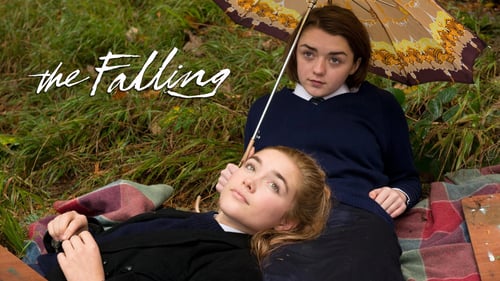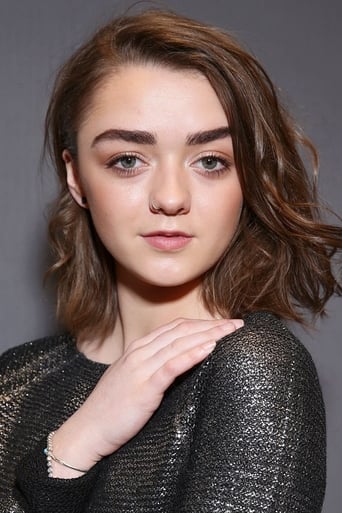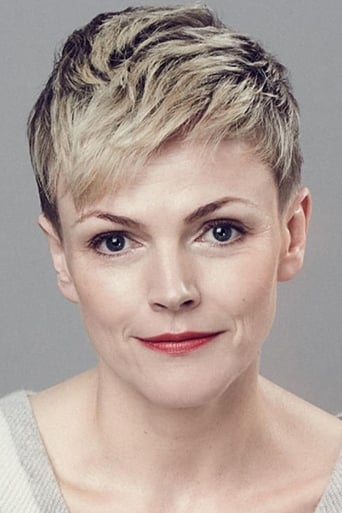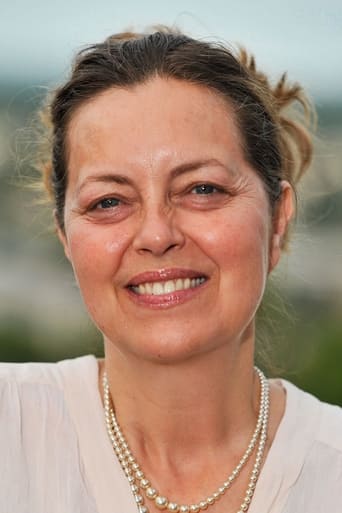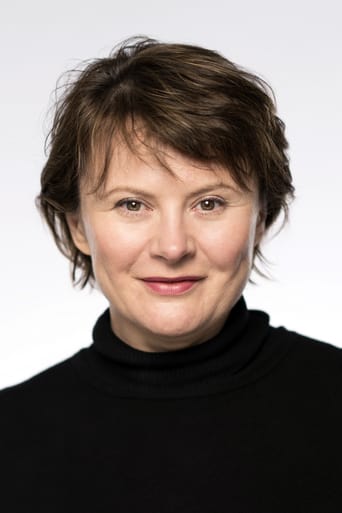BootDigest
Such a frustrating disappointment
Listonixio
Fresh and Exciting
Infamousta
brilliant actors, brilliant editing
Spoonatects
Am i the only one who thinks........Average?
ephraimcassion
If you can avoid the trailer, I think it will be more enjoyable if you go in cold. If you've seen the trailer it is misleading. It's not about an epidemic at an all-girl school with a conspiracy to cover up. At it's core I think The Falling is about two things a generational gap between the females in this movie and their inability to communicate. The older women are from a generation where they endure their hardships (in this movie very tragic ones), don't speak of it and try to move on with life the best they can. The new generation are in a more liberated time. The world went through a lot of social change in the 60's and 70's. So they are more open about their problems and share sometimes too much which is embodied by Abbie. But the girls in this movie are girls. They are very intelligent, they think they know it all but are still confused about things. Even though the younger generation are living in a more liberating time there are still dealing with repression but they have to navigate this new world alone. When they try to reach out to the adults they are unable/unwillingly to help. Not out of maliciousness I think but just don't know how. The women in this movie are not the dumb adults that are always in movies. They see what is going on with these kids but are failing them. When they do intervene it comes to late. One quote that embodies this is by the headmistress. She tells a teacher how the students feel so misunderstood but have no clue about how it's like to be a middle age women.As for the mystery of the movie. Why are these girls fainting. The movie gives two answers with proof for both. In my opinion it's a mixture of both. For critiques of the movie. At times the fainting of the girls seemed way to choreographed and not natural. Some of music is ill placed. Some shots are confusing, they are meant to show us things but lack context or go too fast. I found the movie enjoyable but I wanted more out of it.
James Hitchcock
"The Falling" is set in an English girls' school in 1969. This is a day school rather than a boarding school, but it nevertheless has something of the strict public-school ethos about it. Abigail "Abbie" Mortimer and Lydia "Lamb" Lamont, two pupils at the school, are best friends. Indeed, it is implied that they may be more than just good friends, although whether they are actually having a lesbian relationship is never made explicit. In any case, Abbie cannot be exclusively lesbian as we learn that she has become pregnant by a boyfriend. And then the film starts to get very weird.Abbie dies suddenly, with no real explanation given beyond the fact that she was pregnant. (Pregnancy is not, of course, a terminal illness, but writer/director Carol Morley seems to have been under the impression that it is). Starting with Lydia, girls at the school, and one of the younger teachers, begin to suffer from unexplained fainting spells, and although investigations are carried out, no physical, medical or psychological explanation is ever produced. The headmistress, however, seems to believe the whole thing is, for some obscure reason, Lydia's fault and expels her from the school. Lydia responds to her expulsion by beginning an incestuous relationship with her brother Kenneth, but the reason why she reacts in this way remains as mysterious as everything else in this film.Marlow's first mistake is to kill Abbie off so early on, as Florence Pugh makes her about the only interesting character in the film. Thereafter Lydia moves to the centre of the action, but Maisie Williams never manages to hold our interest in the same way. Unusually for a British period film there is little real sense of the period in which it is set. About the only sixties touch is a brief reference to a stylophone, a curious electronic musical instrument popular during the decade. There is no sense that this was the era of the Beatles, flower-power and free love; we are rather left with the idea that it was a time of a suffocating sexual and emotional repression. The language sounds too modern; nobody in the sixties would have used the expression "She was, like…." To mean "And then she said…..". Even the name "Abbie" sounds more 2010s than 1960s. (The few youthful Abigails about fifty years ago generally shortened their name, if at all, to "Gail" rather than "Abbie").The film was made (and it shows) on a very low budget, only £750,000, petty cash by Hollywood standards or even by the standards of more ambitious British film-makers, but even so managed to make a financial loss, earning less than two-thirds of that sum. Despite its lack of box-office appeal, it was praised by some critics, who compared it to a number of earlier movies, including Peter Weir's "Picnic at Hanging Rock" and Nicolas Roeg's "Don't Look Now". There are, admittedly, certain correspondences between "The Falling" and those two films. All three have a general air of mystery about them, and "The Falling" shares with Weir's film the theme of intense, possibly sexual, friendships between pupils at a girls' school. With Roeg's film it shares a pervading presence of water and the death of a character by drowning.All that goes to show, however, is that two films can resemble one another superficially and yet vary enormously in character and in quality. "Picnic at Hanging Rock" and "Don't Look Now" are masterpieces, two of the greatest films of the seventies, films whose air of mystery is a virtue and which present us with characters we can identify with and care about. Both Weir and Roeg are masters in the art of composing a shot and of pacing the action so as to produce an enthralling movie, and both had some very gifted actors at their disposal."The Falling" is very far indeed from being a masterpiece. Morley is unable to achieve the visual beauty which is a hallmark of Weir and Roeg's films. Where their films were permeated with a haunting sense of mystery, hers is simply baffling as well as hysterical and overwrought in tone. With the partial exception of Pugh, none of the actors stand out. I doubt if anyone will ever class "The Falling" as one of the greatest films of the current decade. 3/10
creer-720-461537
I thought it was very good - it's a slow atmospheric movie in the British movie tradition of Nic Roeg. Reviews here complain of unanswered questions but that's only if you don't pay attention. I did think it was a private school, but seems not - a private school of the 1960s would be more the environment where repression and hysteria are confined, only to spiral out of control. It did lose pace in the last quarter, though concluded with a strong scene. Acting was excellent from all the main parties. I'll certainly look out for her next film. Ludicrously I'm now required to add more lines to make my review more interesting - a pithy review of the salient points is far better than a lengthy ramble. As other's have said above the mother figure was the least satisfactory - being a class conscious Brit there was a clear disconnect between the mother's Southern England rural accent and the daughter's well spoken accent - was it meant to be a grammar school? I don't know.. otherwise the late 60's was very well drawn.
Dan Franzen (dfranzen70)
The premise surrounding The Falling is intriguing. At an all-girls school in 1969, students fall faint following an on-campus tragedy. The fainting spells don't last long, but since fainting is hardly a contagious disorder, the underlying cause is unknown. Worse - and unsurprisingly - most of the non-fainters believe that the girls are faking their episodes.Interesting idea, right? The plot centers on the friendship between troubled, stressed Lydia (Maisie Williams of Game of Thrones) and golden girl Abbie (Florence Pugh). Lydia lives with her hasn't-left-home-in-16-years mother and her brother Kenneth.So what went wrong? Let me count the ways. 1) The reason for the fainting, i.e., the premise of the film, is never satisfactorily explained. Heck, by the final twenty minutes the fainting is an afterthought. 2) There's a shocking subplot that rears its head late in the movie that disappears a couple of scenes later, seemingly unrelated to the fainting. 3) Rather than explore why the girls are becoming ill, the movie focuses on the fact that no one believes them, going as far as putting all of them in the hospital to be physically and psychologically grilled, apparently in an attempt to break them. 4) The relationship between Lydia and her agoraphobic mom simmers near the boiling point for much of the film, erupts once, and then is halfheartedly explained away.Watch this movie (at your own peril) and see if you can figure out why everyone's fainting, or even if they in fact really are. There are hints of supernatural activity - isolated school, scenes in which the girls hold hands in a ring, a la occult worship, a forbidding lake - but it's never clear if any of these aspects has anything to do whatsoever with the girls' maladies. Oh, in case you didn't know, this is also a coming-of-age movie, as so many of them set in girls-only schools are. Perhaps the fainting is a rite of passage into womanhood? Unless you have exceedingly low expectations, you cannot watch this movie and be satisfied by its conclusion. The cast tries hard, and can you believe Greta Scacchi (Shattered, Presumed Innocent) plays the headmistress? Shades of Suspiria. But the direction and editing (particularly microsecond-brief "visions") are the stuff of nonsense.




